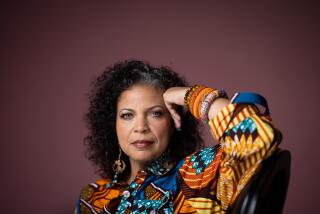Anarchistic Advice to LAPD
Once, returning from a trip to Asia, a U.S. Customs inspector at LAX marked “A” in capital letters on my customs declaration and circled it. Oh my God, how did he know? But instead of marking me as an anarchist, the designation turned out to be A for agriculture, since I had just visited Vietnam, considered a rural region ripe for bug infestation. I was asked to go through agricultural inspection.
In this new millennium, in the post-Seattle World Trade Organization protests era, the specter of hordes of black-clad, masked anarchists running wild in Los Angeles during the Democratic convention has evoked fear that downtown L.A. will suffer the same fate as Seattle’s downtown. City fathers have joined with law enforcement to try to isolate and limit the area where protesters can gather, with civil liberties groups successfully challenging many of the limits.
But if what happened in Philadelphia during the GOP convention is any guide, law enforcement in Southern California, like their brethren in the City of Brotherly Love, will say, “Civil rights be damned,” and be tempted to engage in preemptive strikes against the protesters.
L.A. Police Chief Bernard C. Parks is not likely to ignore the law enforcement lessons from Philadelphia with city fathers there extolling their success in preventing protesters from shutting down the convention. Police there targeted protest leaders like John Sellers, the founder of the Berkeley-based civil disobedience training group, the Ruckus Society, who initially was hit with an incredible $1-million bail (later lowered)--an amount typically reserved for serial killers, not those accused of misdemeanors. Most of the protesters were rounded up before they did anything, in a sort of preventive detention one would have thought was barred by the U.S. Constitution. L.A. will appear lax in not copying that successful tactic.
Such “proactive” law enforcement makes a mockery of constitutional guarantees of freedoms of assembly and speech. Watching the video and reading the news accounts on alternative Web sites about the widespread civil rights violations perpetrated by Philadelphia’s Finest, I could not help wondering if the birthplace of the U.S. Constitution and the city that houses the Liberty Bell had not become another urban enclave in a banana republic where dissidents were routinely locked up.
Since Seattle, anarchists have become American society’s latest nightmare. Young people are convenient scapegoats in an era where even rights for adults are fast becoming a scarce commodity--witness the fact that few workers have any recourse to employers snooping on their e-mail.
On “Subversity,” my KUCI radio show, I’ve interviewed Orange County anarchist youth who are part of the August Collective, a group organizing a weeklong North American anarchist conference that overlaps the Democratic convention. These scions of Orange County’s working families are not zonked-out kids out to do wanton violence. Indeed, among anarchists themselves there is no consensus that violence is the right tactic. Some like pointing out that there is a difference between violence against people and that against property. Yet others worry that any violence will only incur a violent police crackdown, with the anarchist message lost in the turmoil.
To be sure, the image of masked protesters does bring fear to those in power. Intimidation, after all, is one of the purposes of wearing the masks, as in hiding the identity of the wearer. But the anarchists I talked with also point out that police themselves often pull down the face shields on their riot-gear helmets and turn over their badges, thereby effectively preventing identification. So, they argue, they are just borrowing a tactic used by the cops.
Like their ideological predecessors from the student protests of the ‘60s, the anarchists I know are disgusted with their parents’ generation and abhor the capitalist values that dominate conventional politics. Authorities in L.A. need to sit back, reflect and not be panicked into a constitutional blunder that would take years and lawsuits to untangle. These children of the dot.com generation have an important message that needs to be given voice: We don’t want to be cogs in a global capitalist machine.
As for my agriculture inspection, I passed with flying colors.
More to Read
Sign up for Essential California
The most important California stories and recommendations in your inbox every morning.
You may occasionally receive promotional content from the Los Angeles Times.










